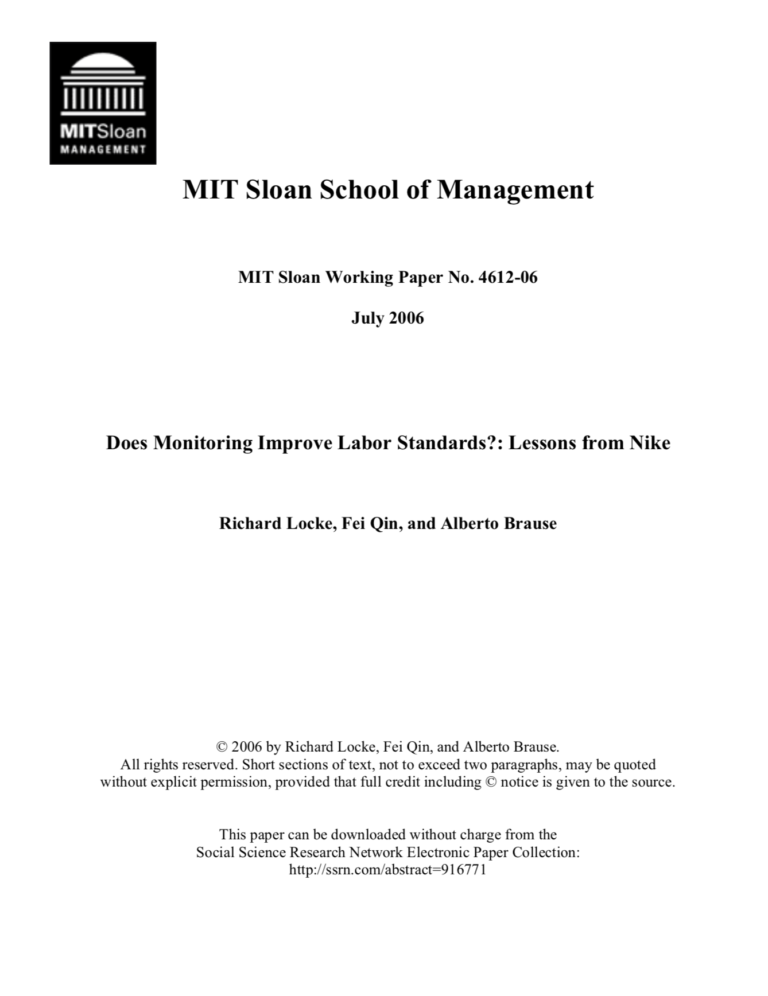Using a unique data set based on factory audits of working conditions in over 800 of Nike’s suppliers in 51 countries, this paper seeks to explore whether or not monitoring for compliance with corporate codes of conduct — currently the principal way both global corporations and labour rights non-governmental organizations (NGOs) address poor working conditions in global supply chain factories — actually leads to remediation in terms of improved working conditions and enforced labour rights. The evidence presented suggests that notwithstanding the significant efforts and investments by Nike and its staff to improve working conditions among its suppliers, monitoring alone appears to produce only limited results. Instead, our research indicates that when monitoring efforts are combined with other interventions focused on tackling some of the root causes of poor working conditions — by improving the ability of suppliers to better schedule their work and improve their quality and efficiency — working conditions appear to significantly improve. This suggests that the current (highly polarized) debates over monitoring and labour standards need to be recast and new, more systemic approaches towards tackling these problems need to be pursued.

